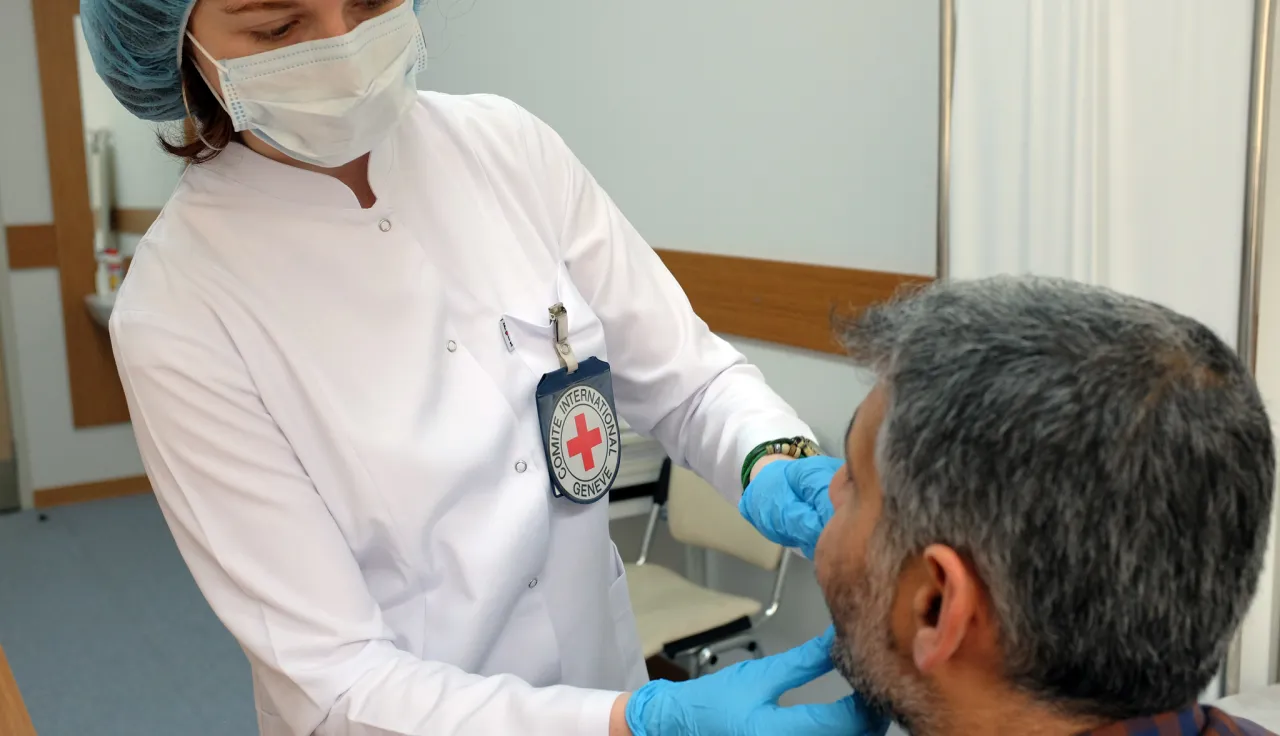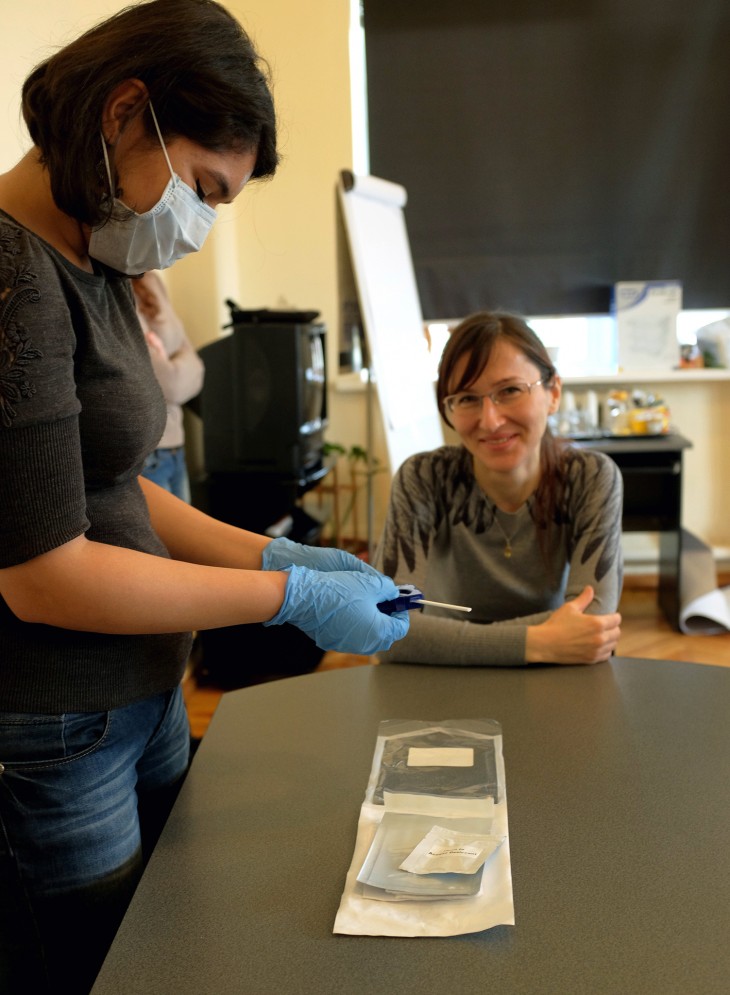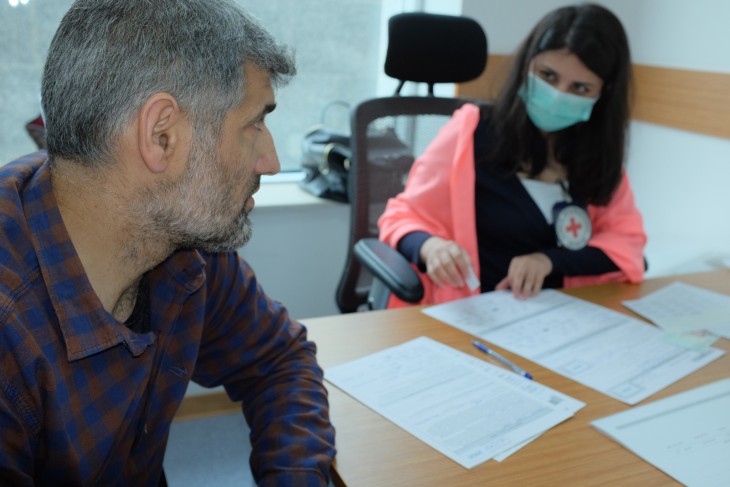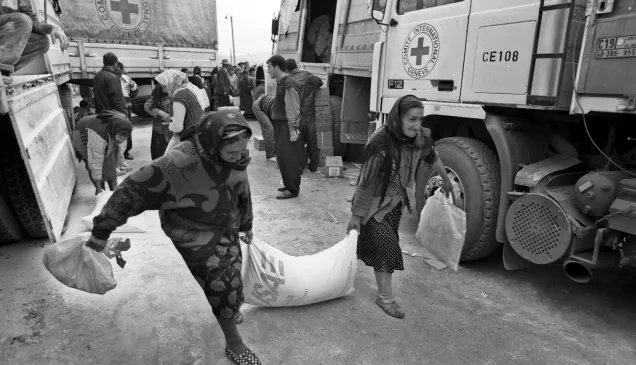Azerbaijan: Biological samples to help clarify fate of missing persons

Almost 4,600 people are still unaccounted for, more than two decades after the signing of a ceasefire agreement in the Nagorny Karabakh conflict between Azerbaijan and Armenia.
The ICRC is working closely with the State Commissions on Prisoners of War, Hostages and Missing Persons of Azerbaijan and Armenia to clarify the fate of these people and end the pain of not knowing for thousands of relatives.
In Azerbaijan, the ICRC and the State Commission are processing information about missing persons that their relatives have provided, using a database that makes it possible to cross-check information about missing persons with data from human remains.

Azerbaijan. During training, a technician learns how to carefully take swabs from the mouths of people whose relatives disappeared during the Nagorny Karabakh conflict. CC BY-NC-ND / ICRC / Z. Burduli
In addition, the State Commission and the ICRC are now taking biological reference samples (BRS) to supplement the information that is already available. A DNA profile can be extracted from the samples taken from family members and compared with DNA extracted from human remains. This can contribute to the identification process, bringing answers to some of those still longing to know the fate of a missing relative.
Obtaining a BRS involves taking a swab from the inside of the mouth. Sample collection began in 2014 with a pilot project involving 400 relatives of missing persons in the Yasamal district of the Azerbaijani capital Baku. In some cases, mobile collection teams visited the families at home to collect their samples. All samples are stored in the hospital of the Ministry of National Security.

Azerbaijan. A staff member completes the documentation on a person whose relative has been missing since the Nagorny Karabakh conflict. CC BY-NC-ND / ICRC / Z. Burduli
Re-opening memories of loss is painful, but people participating in the project feel compelled to find out what happened to their missing relatives. "I'm relieved that the ICRC is still working on this," said one participant, "but it's very painful for me to relive the horror of losing my brother." The project is now being extended beyond the initial 400-person sample to collect genetic information from some 16,000 people with missing relatives.
The BRS project will involve geneticists, psychologists, forensic scientists, nurses, relatives of missing persons, the State Commission and the hospital of the Ministry of National Security, which has offered its continued support.
The ICRC continues to offer its services to the State Commissions of the region as a neutral intermediary for the transmission of information on missing persons.



